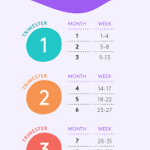
Introduction
If you have to take a lie detector test, it is important to know how to pass a lie detector test. This article will give you some tips and factors to consider that will help you pass your polygraph test.
What is a Lie Detector Test?
A lie detector test is a scientific method of determining whether someone is telling the truth or not. The test is based on the principle that when a person lies, their body undergoes physiological changes that can be detected by the polygraph machine.
There are several essential factors to consider if you want to pass a lie detector test. First, it is important to understand how the test works and what factors can influence its accuracy. Second, you need to be aware of the questions that will be asked during the test and prepare your answers accordingly. Finally, it is also important to relax and stay calm during the test, as any type of nervousness can impact the results.
Keep these factors in mind and you’ll be well on your way to successfully passing a lie detector test!
How do Lie Detector Tests Work?
A lie detector test, also called a polygraph test, is a device that measures and records several physiological indicators such as blood pressure, heart rate, respiration, and skin conductivity. The theory behind lie detector tests is that when a person is lying, their body will undergo physical changes that can be detected by the machine.
There are three main factors that determine the success of a lie detector test: test anxiety, question format, and physiological reactivity. Test anxiety refers to the nervousness or stress that a person feels when they are being asked questions that could potentially incriminate them. The higher the test anxiety, the more likely it is that the person will show signs of deception.
The format of the questions is also important. Questions should be specific and direct in order to elicit a clear response from the test subject. If the questions are too vague, the subject may be able to get away with lying without being caught by the machine. Physiological reactivity refers to the bodily changes that occur when a person is under stress or lying. These changes can include an increase in heart rate, blood pressure, and respiration.
By taking all of these factors into consideration, you can increase your chances of success on
Factors that Affect the Outcome of a Lie Detector Test
There are a number of factors that can affect the outcome of a lie detector test. The following are some of the most important ones to keep in mind:
1. The type of questions that are asked: The questions that are asked during a lie detector test can have a big impact on the results. If the questions are too general or not relevant to the issue at hand, it can be difficult to get an accurate reading.
2. The person’s psychological state: A person’s psychological state can also affect the results of a lie detector test. If a person is under a lot of stress or anxiety, they may be more likely to produce false positive results.
3. The person’s physical state: A person’s physical state can also play a role in the accuracy of a lie detector test. If a person is tired or physically uncomfortable, it may impact their ability to answer questions accurately.
4. The environment: The environment in which the lie detector test is conducted can also influence the results. If the room is too hot or cold, if there is too much noise, or if the person taking the test is feeling distracted, it may lead to inaccurate results.
Tips for Passing a Lie Detector Test
A lie detector test, also called a polygraph test, is a test used to detect deception by measuring physiological responses. There are several essential factors to consider if you want to pass a lie detector test.
First, you need to understand how the test works. The test measures your heart rate, blood pressure, respiration, and perspiration. These are all indicators of stress and anxiety. The test administrator will ask you questions and compare your answers to your physiological responses.
Second, you need to control your anxiety. If you’re nervous or anxious about the test, your physiological responses will be higher and it will be more difficult to pass the test. Try to relax and stay calm before and during the test.
Third, you need to know what types of questions will be asked. The administrator will ask both control questions (questions designed to elicit a physiological response) and relevant questions (questions related to the matter being investigated). It’s important to answer the control questions truthfully so that your responses to the relevant questions can be accurately interpreted.
Fourth, you need to practice answering questions truthfully. This will help you get a feel for how the test works and what kind of responses are necessary to pass
Conclusion
In this article, we have looked at how to pass a lie detector test by considering the essential factors for successful polygraph tests. We hope that you have found this information useful and that it will help you if you ever need to take a lie detector test. Remember, the most important thing is to be truthful and honest with the polygraph operator so that they can get an accurate reading. Good luck!






